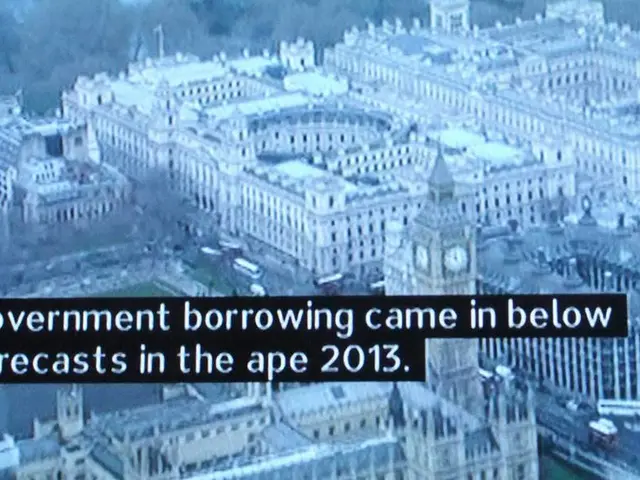Hawaii to Boost Hotel Tax in Response to Climate Change Challenges
Article Rewrite:
Hawaii set to break new ground with a unique tax hike on travelers staying in hotels, vacation rentals, and other short-term accommodations. The fresh revenue is designated for programs addressing climate change and environmental protection.
State officials plan to allocate funds for projects like reinforcing beaches, equipping homes with hurricane clips, and eradicating invasive plant species, such as those that ignited the destructive wildfire in Lahaina two years ago.
A bill already on the Senate and House votes' roster—initially scheduled for Wednesday but now rescheduled for Friday—proposes a 0.75% increase to the daily room rate tax, set to take effect from January 1. The legislation seems all but guaranteed to pass, considering the Democratic supermajorities in both chambers and the party leaders' agreement on the measure. Governor Josh Green has expressly stated his intention to sign the bill into law.
Estimates suggest that this increase would yield $100 million in new revenue each year.
"We incurred a catastrophic $13 billion loss in Maui and lost 102 lives. Such funds will aid in averting future disasters," Green remarked during an interview.
Hawaii marks the first state to enforce such innovative measures. Andrey Yushkov, a senior policy analyst at the Tax Foundation, was unaware of any other state adopting this strategy, setting aside lodging tax revenue for environmental protection or climate change initiatives.
The increase will add to the already substantial duty on short-term stays, pushing the state's existing 10.25% tax on daily room rates up to 11%. Additional taxes include a 3% county surcharge and a combined 4.712% general excise tax on goods and services, including hotel rooms, leading to a total tax rate of nearly 19%. Only Omaha, Nebraska (20.5%) and Cincinnati (19.3%) among large U.S. cities have higher cumulative state and local lodging tax rates, according to HVS's 2024 report.
Green maintains that the 10 million tourists flocking to Hawaii each year should contribute to preserving the environment for the state’s 1.4 million residents.
Green emphasizes that travelers will be inclined to pay the higher tax as it will ensure the preservation of cherished spots like Maui’s road to Hana and Oahu’s North Shore, as well as the pristine beaches. Following the wildfire, Green reported hearing from numerous people across the country offering assistance. This tax increase, he argues, presents a significant means for them to make a difference.
The hotel industry embraces this new legislation, yet expresses mixed feelings. Jeff Gibson, president of the Hawaii Hotel Alliance, lauded lawmakers for not adopting an initially proposed higher increase.
"No one advocates for increased taxation. However, our state needs funds," Gibson underlined. He views the revenue towards environmental beautification positively, believing it compensates for the perceived higher burdens on tourists.
Hawaii has long grappled with financing the extensive environmental and conservation needs of the islands, from protecting coral reefs and controlling invasive species to preserving wildlife habitats and maintaining trails. Two years ago, lawmakers mulled mandating tourists to acquire a yearly license or pass for visiting state parks and trails, but this idea was scrapped due to concerns about violating U.S. constitutional protections for free travel. Boosting the lodging tax stands as a compromise solution, made more pressing by the Maui fires’ aftermath.
An advocacy group, Care for Aina Now, calculated a $561 million gap between Hawaii's conservation funding needs and current annual expenditures.Green acknowledges that the revenue from the tax increase falls short of bridging this gap, but believes that the state can issue bonds to expand the impact of the raised funds. Most of the $100 million is earmarked for projects with one-to-two year completion timelines, while $10 to $15 million supports long-term infrastructure projects funded by bonds.
Kāwika Riley, a member of the governor's Climate Advisory Team, explained the new tax using a Hawaiian saying, "A stranger only for a day," which means that a visitor should contribute to the collective effort after the first day of their stay.
"We don't expect tourists to physically work for us. Instead, it's crucial to be part of the solution. It's essential to show care for the places that draw travelers from around the world," Riley explained.
- The revenues generated from the unique tax hike in Hawaii, aimed at climate change and environmental protection, will fund projects beyond just reinforcing beaches and eradicating invasive plant species.
- According to the Senate and House votes' roster, the proposed bill, which includes a 0.75% increase to the daily room rate tax, is scheduled for a vote on Friday.
- The increased tax revenue, estimated to be around $100 million annually, is designated to address not only environmental issues but also climate change, a pressing concern addressed in the realm of science and climate-change studies.
- Hawaii's innovative approach to environmental funding has gained attention in the media and general news, with no other state identified as having adopted a similar strategy.
- The additional revenue from the increased traveler tax will contribute significantly to the state's financing of numerous environmental and conservation needs, such as preserving wildlife habitats and maintaining trails.
- Despite the mixed feelings within the hotel industry, representatives have acknowledged the need for funds and view the revenue towards environmental beautification positively, believing it compensates for the perceived higher burdens on tourists.
- In the face of the $561 million gap between Hawaii's conservation funding needs and current annual expenditures, the revenue from the tax increase is only a partial solution. The state is considering using bonds to expand the impact of the raised funds, particularly for long-term infrastructure projects.







